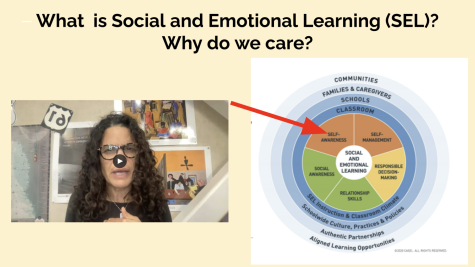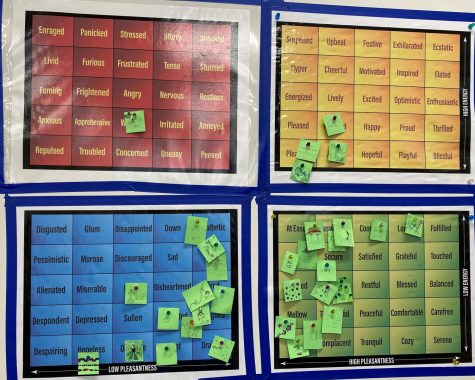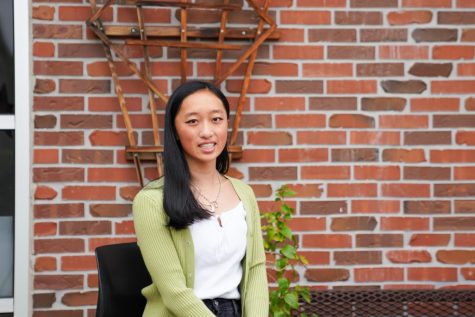MVHS looks to enact long-term mental health changes
Examining new actions taken by the SEL taskforce
March 4, 2022
The MVHS Social Emotional Learning (SEL) taskforce was created in February of 2021 to improve students’ emotional awareness and mental health at school. According to Library Media Specialist Doreen Bonde, the taskforce is composed of administrators, teachers, staff and students who are committed to teaching social emotional learning while promoting equity by making resources available to all students. With the start of in person school this year, the taskforce has gained opportunities to implement some changes.

One hurdle that the taskforce is facing is the current schedule, which does not have built-in Advisories each week like during the 2020-2021 school year. School based therapist Leila Lurie got the opportunity to lead one Advisory lesson in October, where she gave an overview of social emotional learning. Junior Ananya Dua felt the advisory lesson was a positive experience and a necessary reminder for students to take care of their mental health.
“SEL is promoting [how to] cope with [difficulties] if they ever come up, so I think it’s very important especially in high school because we’re going through so much,” Dua said. “I wish [the Advisory lessons] were more frequent.”
Other than the Advisory lesson, Bonde explained that the SEL taskforce is also working on multiple behind the scenes projects. Among these is the goal of creating a standardized SEL curriculum or class. This objective aligns with SB-224, a bill passed by the Senate in October of 2021 that requires schools to create a plan to expand mental health education for students before January 2024.
“We’re providing support in a number of different ways, including training for staff in using SEL check ins with students via tools like the Mood Meter, and helping integrate SEL into classrooms and our campus culture,” Bonde said. “Some of the next steps will include more systemic and structural changes, so stay tuned through the spring and into next year to see more.”

In many classrooms, teachers have already incorporated Mood Meters for students to utilize. Every Wednesday, the students in AP U.S. History teacher Bonnie Belshe’s class place personalized magnets onto the Mood Meter based on how they are feeling.
“[The Mood Meter] helped me visually see how I’m feeling and also my growth over time. I can see [that] one week I’m in the red box, and then [the next week] I’ll feel better [and be in the green],” Dua said. “I can just sort of see what’s working for me and how I’m feeling better by doing certain things.”
Belshe also changed her Wednesday classes to “Get Stuff Done Day,” which is when students can catch up on APUSH work, ask questions and revise exams. This shift is part of Belshe and Lurie’s efforts to bring back the asynchronous Wednesday schedule from remote learning.
“During remote learning, teachers did not present new material [on Wednesdays],” Lurie said. “So my dream would be that that trend would continue and that [Wednesday] would be a day to make [work] up [or] where teachers are focusing on team building and community — especially it being [in the middle of the week], this would be such a welcome break.”
Despite the progress throughout the past year, the SEL taskforce has faced setbacks as well. Due to a lack of members, junior Divya Venkataraman explained that the students on the SEL taskforce have been inactive since the start of the school year.
“Unfortunately this year [the student SEL taskforce is] not fully formed because there’s a few kinks in everything that was going on,” Venkataraman said. “I really do hope that if [the student taskforce] rebounds in the future, we get more voices heard and more awareness about what we’re doing and hopefully even more members.”
Overall, all members of the taskforce view SEL as a crucial step to improve the mental well-being of everyone in the MVHS community.
“My hope is that the adults on campus can see the value of SEL not only for students, but for ourselves as well,” Bonde said. “For myself as a staff member, a parent, an educator and a community member, I believe that teaching and supporting SEL skills benefits everyone, so I genuinely hope that my colleagues find the positive results of SEL in their own lives, and can model and share those experiences with students.”




























